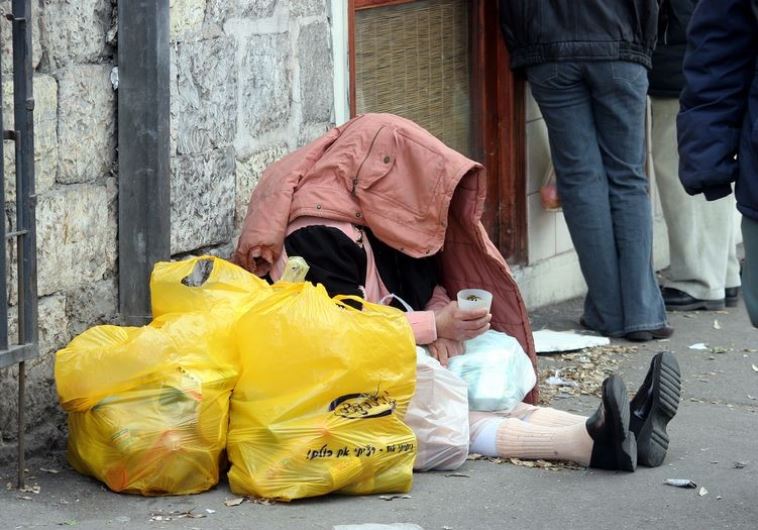Annual report paints grim picture of poverty in Israel
According to Central Bureau of Statistics data, in 2014 there were 776,500 children living below the poverty line.
 A homeless person begs for change in Israel(photo credit: MARC ISRAEL SELLEM/THE JERUSALEM POST)Updated:
A homeless person begs for change in Israel(photo credit: MARC ISRAEL SELLEM/THE JERUSALEM POST)Updated: